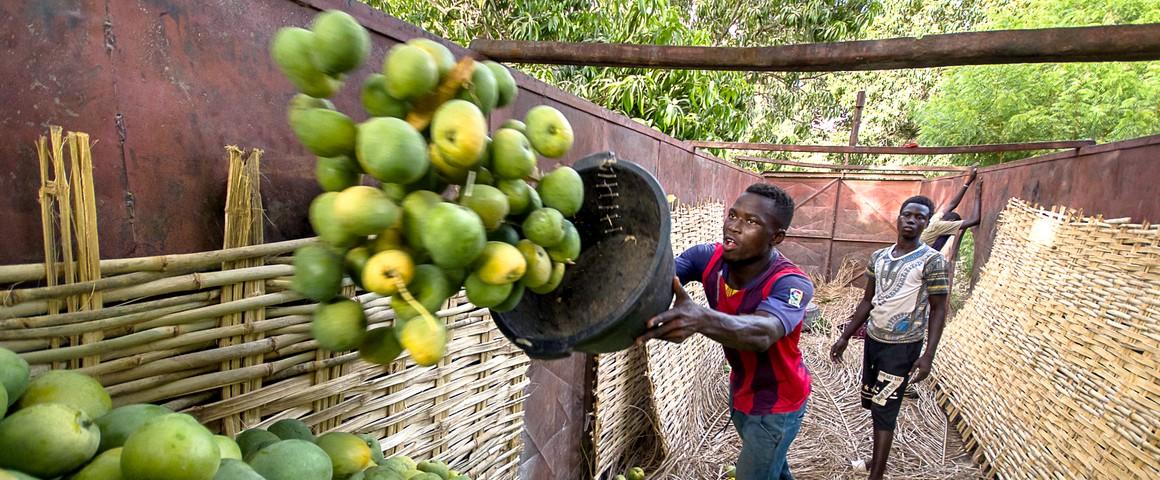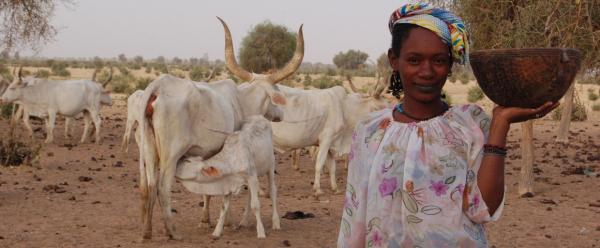Event 9 December 2025
- Home
- CIRAD news
- News
- International Horticultural Congress 2022
International Horticultural Congress: tropical and Mediterranean countries will be more involved than ever

Horticulture is now considered an essential component of global food and nutritional security and balance. Here, mangoes in West Africa © R. Belmin, Cirad
France, and more specifically Angers, has been chosen to hold this prestigious congress. The congress, held over a week every four years, brings together almost 3000 participants from 70 countries to discuss horticultural issues.
CIRAD, which will be involved in organizing the event*, is particularly keen to boost the involvement of partners from tropical and Mediterranean countries in this 31st edition. "We will be doing everything we can to boost the representation of countries in the global South and of research topics close to their hearts during the congress", says Rémi Kahane, a CIRAD researcher and International Vice-President in charge of organizing the congress. "It is vital that we bring together every type of situation and viewpoint", he adds. "In the North, one of the horticultural priorities is to produce while respecting the environment, by ensuring cleaner water and air. In the South, the main priorities are food, nutrition and incomes."
The congress will also make it possible to attract more young people, particularly from tropical and Mediterranean countries, to the global scientific community led by the International Society for Horticultural Science (ISHS).
CIRAD and tropical and Mediterranean horticulture
Eleven of CIRAD's research units conduct innovative horticultural research, within a transverse, value chain-led approach:
- Genetic Improvement and Adaptation of Mediterranean and Tropical Plants (UMR AGAP)
- Pland Communities and Biological Invaders in Tropical Environments (UMR PVBMT)
- Plant Health Institute of Montpellier (UMR PHIM)
- Integrated Approach to Food Quality (UMR QUALISUD)
- Agroecological Functioning and Performances of Horticultural Systems (UPR HortSys)
- Ecological Functioning and Sustainable Management of Banana and Pineapple Cropping Systems (UPR GECO)
- Innovation and Development in Agriculture and Food (UMR Innovation)
- MOntpellier Interdisciplinary center on Sustainable Agri-food systems - Social and nutritional sciences (UMR MOISA)
- Water Management, Actors, Territories (UMR G-Eau)
- Actors, Resources and Territories in Development (UMR ART-Dev)
- Knowledge, Environment and Societies (UMR SENS)
Some of CIRAD's research linked to horticulture in tropical environments
- Genetic resource management, for instance banana improvement in the West Indies and vanilla improvement in Réunion. CIRAD holds the largest vanilla collection in the world.
- Urban and periurban horticulture, on issues surrounding specific food systems in urban conditions, or nutritional and health issues (jobs, incomes) within small-scale production units.
- Agroecological crop protection, for instance the use of insect nets to protect market garden crops grown by small-scale producers in tropical areas or of service plants to control weeds in fruit tree orchards.
* With AgrocampusOuest, INRAE, The University of Angers, Végépolys Valley and Angers City Council.



























